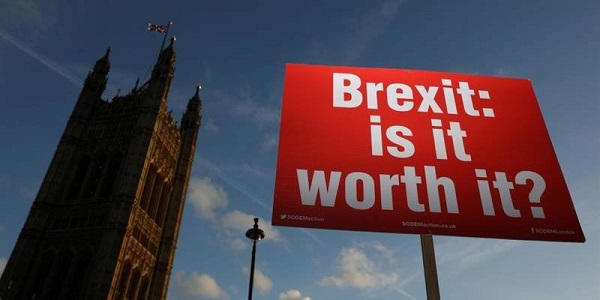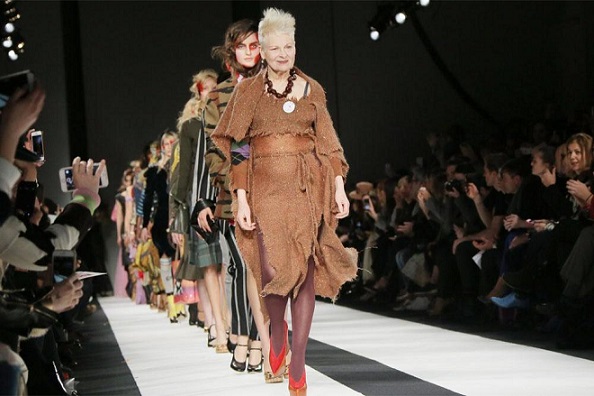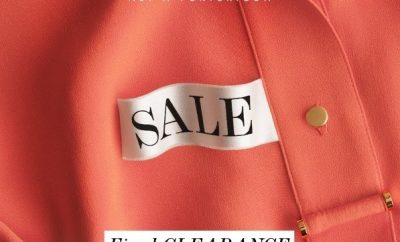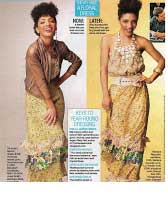
Fashion
Will a no deal on Brexit be a disaster for the British Fashion Industry?
In the build-up to London Fashion Week the prospect of a ‘no-deal’ on Brexit poses a serious risk to the UK Fashion Industry. The future of British fashion depends on talented young designers feeling that they can grow their businesses in Britain. However, the prospect of a “no deal” on Brexit threatens the development of new talent and designs in Britain by making the economic climate unstable and ultimately unwelcoming. To paraphrase Hugh Grant as the Prime Minister in the movie Love Actually, Britain” may be a small country, but we’re a great one too.” The same can be said of Britain’s impressive fashion industry with brand names like Burberry, Roksanda, Matthew Williamson, Stella McCartney, Alice Temperley, Zhandra Rhodes, Vivienne Westwood and Alexander McQueen just to name a few of the UK’s fashion superstars. The UK fashion industry is estimated to be worth £32 billion (roughly 39 billion in US dollars) to the UK GDP. Indeed the industry employs more than 890,000 people across Britain – almost as many as the financial sector.

Dame Vivienne Westwood on the runway at London Fashion Week.
So what impact would a “no deal ” Brexit scenario have on this economic powerhouse? According to the British Fashion Council, without a deal, the British fashion industry would be negatively impacted. Based on export figures from 2018 it is estimated that switching to World Trade Organisation (WTO) rules would cost the fashion industry between £850 and £900 million* (source: UK Fashion & Textile Association).

The Queen attends London Fashion Week with Anna Wintour
With the possibility of an economic downturn looming large, the British Fashion Council (BFC) urges that the British government strike a deal with the European Union that would preserve the health and continued growth of the UK’s fashion industry. To continue to compete globally, British designer businesses need support through trading agreements, access to finance, free movement of talent and advice on the best way to navigate global trade challenges.

Model Karlie Kloss in Stella McCartney’s Mirabella cape-effect stretch-cady gown at the Oscars
In advance of London Fashion Week September 2019, the BFC held a seminar for designers specifically around preparing for a no deal Brexit, helping them identify the risks and challenges to their business and help them prepare for WTO rules in the event of no deal being reached by 31st October 2019.

A classic with a Rock n’ Roll Twist the Burberry Trench
Trade concerns for the UK fashion industry:
The BFC’s main concerns around the impact of Brexit on designer businesses focus around trade and talent.
Below are the main trade concerns the BFC would like to highlight, in case of WTO rules and in a no deal scenario:
• Businesses are having to assess the impacts of WTO tariffs. It is unclear who will take on the additional costs – the businesses or the end consumers
• Understanding of time frames. It is impossible to give 24 hours’ notice to HM Revenue & Customs around goods being shipped. To compete internationally, goods need to be shipped immediately
• Understanding around definitions of samples. What will happen to travelling samples and what paperwork will be needed? The BFC already has anecdotal notes of businesses being stopped and asked for paperwork, although not currently required. Tariffs and VAT will apply to samples
• The impact to logistics systems. Despite freight companies preparing, they can’t plan properly until they have clarity around new import and export rules. The impact on temporary warehousing. The impact of having to deal directly with brokers at ports, the paperwork associated with this and any delays this may incur.
• VAT issues: businesses will have to do claims across 27 member states rather than to the EU as a whole
Working to resolve existing known immigration issues
In January 2019 new immigration rules laid in parliament covered Tier 5 visas used by models to enter the country, through a new Models Code of Practice. However, these changes and the proposed changes to the immigration system through the government’s white paper, would not cover skilled, lower paid workers from machinists, to language experts, leaving concerns about skills gaps for the industry. Of particular concern is the recommendation that the Tier 2 visa has a £30,000 minimum threshold on salary, with skilled roles in fashion manufacturing typically earning less than this. Similarly, the shortage occupation list does not cover any roles required by the high-end fashion industry. The BFC asks that the salary threshold and shortage occupation list are reviewed as a matter of urgency.
The situation in Britain is all to familiar to American citizens as we also face issues around workplace diversity, immigration regulations and the need to attract the best talent. Inclusiveness and opportunity go hand and hand with talent and creativity. I hope the concerns of the British Fashion Council on the possible ramifications of a no-deal Brexit outcome lead to positive changes.

















0 comments